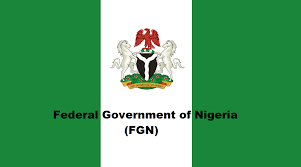The Federal Government has partnered with the United Nations Economic Commission for Africa (UNECA) and the United Nations Development Programme (UNDP) in training on the Integrated Planning and Reporting Toolkit (IPRT).
This training, according to a press release by Desmond Utomwen, spokesman in the Office of the Senior Special Assistant to the President on Millennium Development Goals (OSSAP-SDGs), was a significant step toward strengthening Nigeria’s development planning and reporting capacities.
The training, which took place from December 9–13, 2024, aimed to enhance the alignment of Nigeria’s National Development Plan (NDP) with the global 2030 Agenda and the African Union’s Agenda 2063.
The training opened with remarks from Mr. Mohamed M. Fall, the UN Resident Coordinator and Humanitarian Coordinator in Nigeria, who emphasized the importance of harmonizing Nigeria’s development aspirations with global and regional agenda.
“The Integrated Planning and Reporting Toolkit offers a powerful means to digitalize development plans, align them with the Sustainable Development Goals (SDGs) and Agenda 2063, and foster more efficient tracking and reporting mechanisms,” he said.
Representing the Senior Special Assistant to the President on SDGs (SSAP-SDGs), Dr. Bala Yunusa reaffirmed Nigeria’s commitment to integrating innovative tools like the IPRT into its development strategy.
“This initiative highlights Nigeria’s determination to align its national priorities with global and regional frameworks. The IPRT will enable planners across federal and state levels to integrate budgets with development strategies and monitor progress in real-time,” Dr. Yunusa said.
The training was facilitated by Ms. Rose Keffas, who guided participants through the IPRT’s functionalities and its potential to revolutionize planning processes at federal and state levels.
In his remarks, Mr Felix Okonkwo the Director of Macroeconomic Analysis at the Ministry of Budget and Planning, emphasized the importance of the IPRT, noting that the training was both timely and apt as Nigeria prepares for its next National Development Plan.
Speaking on behalf of the United Nations Economic Commission for Africa (UNECA), Mrs. Oyebanke Abejirin commended Nigeria’s leadership in adopting the IPRT.
“This innovative software was developed by UNECA to assist African countries in integrating the SDGs and Agenda 2063 into national development plans while ensuring harmonized reporting and evaluation,” she explained.
Dr. Tony Muhumuza, Senior Economic Adviser for the United Nations Development Programme (UNDP) Nigeria, reiterated UNDP’s unwavering commitment to supporting Nigeria’s sustainable development journey.
“UNDP is fully committed to working alongside the Government of Nigeria to harness innovative solutions like the IPRT.
This toolkit offers an opportunity to embed sustainability into development planning and strengthen monitoring for measurable outcomes,” Dr. Muhumuza remarked.
Representing the Statistician General of the National Bureau of Statistics (NBS), Semiu Adeyemi Adeniran, Anne Ibrahim delivered remarks on the status of SDG indicators reporting.
She outlined key achievements, including improved data collection mechanisms and partnerships that have bolstered Nigeria’s ability to track progress on SDG targets.
She, however, acknowledged lingering challenges, such as funding gaps, capacity deficits, and data accessibility at sub-national levels.
Mrs. Olubunmi Oluwole, Assistant Director at AUDA-NEPAD Nigeria, emphasized the relevance of the IPRT for achieving Agenda 2063’s aspirations.
“The IPRT is a vital instrument for aligning national development plans with regional and continental priorities. By leveraging this toolkit, Nigeria can enhance its capacity to plan, implement, and report on development initiatives,” she remarked.















